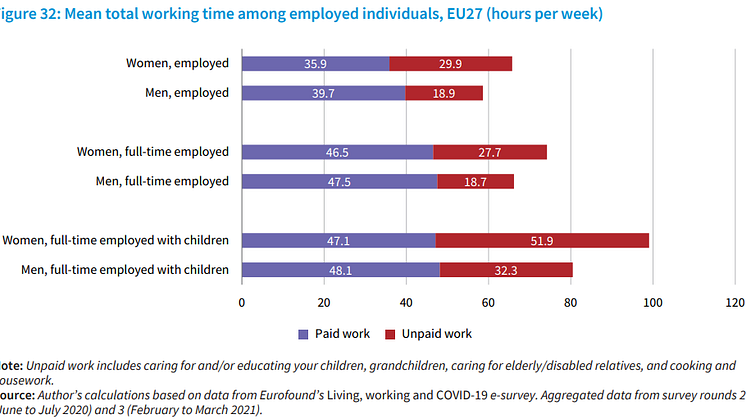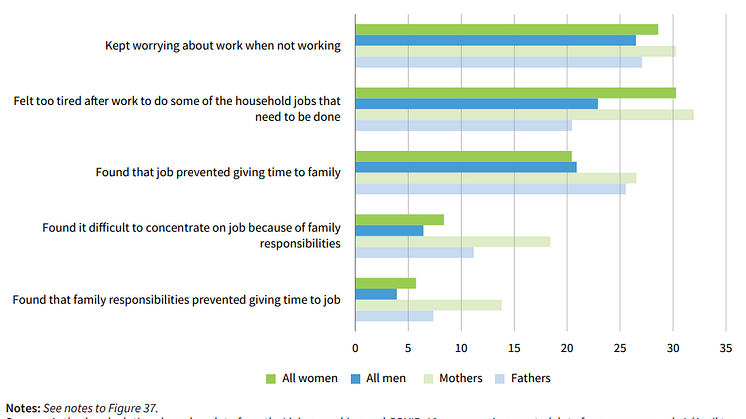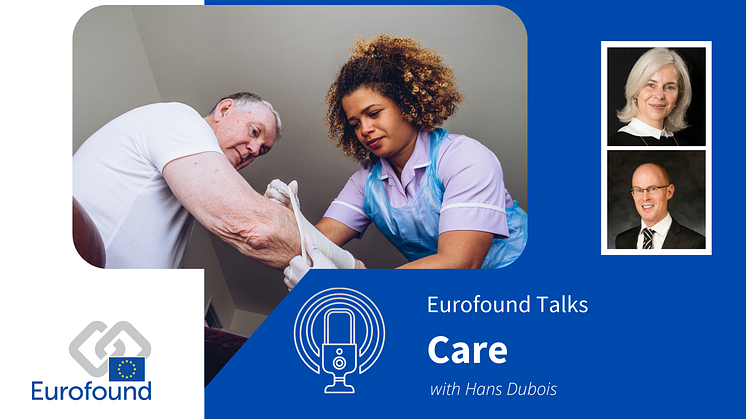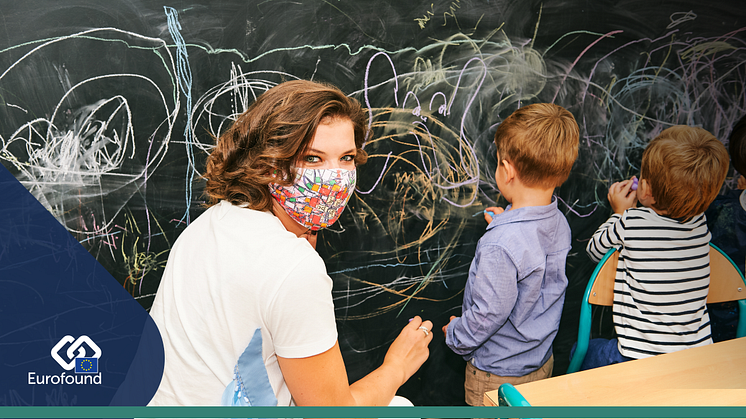
News -
COVID-19 crisis deepened gender divides at work and home
The impact of the COVID-19 crisis has deepened the traditional gender divides across many areas including the labour market, working conditions, work-life conflict and overall working time, according to findings from Eurofound’s latest research report; COVID-19 pandemic and the gender divide at work and home. The report highlights in particular the impact on women with young children working from home and points to the critical role of care services in supporting women’s labour market participation, financial security and overall well-being.
In the labour market, the impact of the COVID-19 pandemic appeared to affect men and women equally, however job losses for women were most widespread among the lowest-paid workers. Although women retained employment in some sectors where they have a high concentration, such as essential services and teleworkable jobs, other sectors where women are overrepresented such as hospitality and care saw far greater job losses during the pandemic than other sectors. Conversely, men’s job losses were more evenly distributed.
Life at home during the COVID-19 crisis was also challenging with a dramatic increase in work-life conflicts over the course of the pandemic for both men and women. This deterioration in work-life balance was especially striking among teleworking mothers of young children. The new findings reveal how the switch to teleworking or flexible working arrangements are more likely to be adopted by women, risking a worsening of gender inequalities where increases in unpaid workload and lower visibility in the workplace can lead to unintended consequences on career progression, pay and pensions.

Furthermore, the COVID-19 crisis increased the need for unpaid work, accentuating gender roles: women’s share of caring, cooking and cleaning increased, while men’s share of gardening, DIY and transporting family members also rose. In dual-earner families, the father’s share of childcare only increased if the mother worked outside the home and the father did not.
Among employed individuals, women’s total weekly working time (when paid and unpaid work are combined) exceeds that of men by over 7 hours in the EU. This figure rises to almost 19 hours when those who are full-time employed with children are compared.

The results, drawn from analysing various EU-wide data sets, examine gender inequalities pre-pandemic and describe the way the pandemic has impacted these inequalities. In addition, the report analyses the various policy responses of national governments in the EU to address some of these issues, and describes how evidence-based policymaking can have a positive impact on gender equality, particularly related to care.
Speaking following the publication of the report, Eurofound Deputy Director Maria Jepsen said, ‘The COVID-19 crisis has highlighted gender divides at work and home. Post-pandemic we have an opportunity to bring about real change by addressing gender norms, behaviours, and policy innovation. It is crucial for policymakers, including social partners, to prioritise gender issues while continuing to closely monitor and evaluate progress.’
More information:
- Report: COVID-19 pandemic and the gender divide at work and home
- Topic page: Living conditions and quality of life
- Topic page: COVID-19
- Data and resources: Living, working and COVID-19
- Data and resources: EU PolicyWatch










